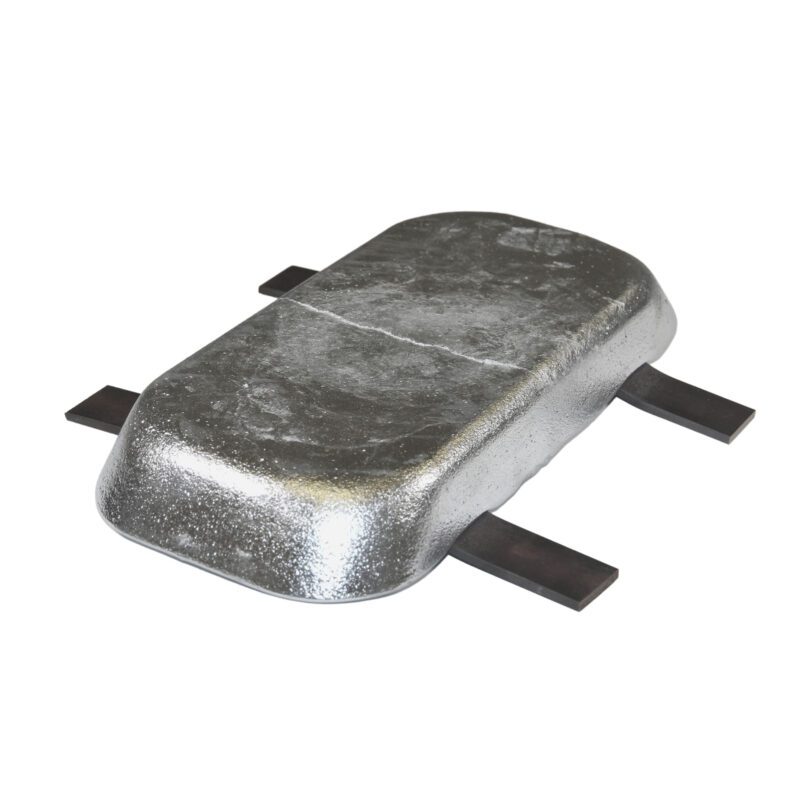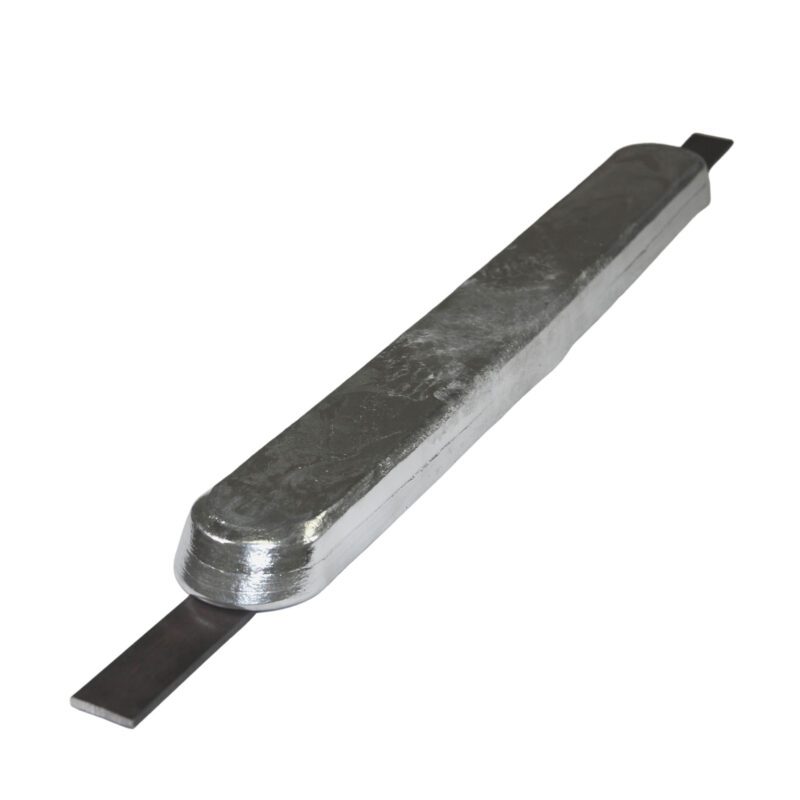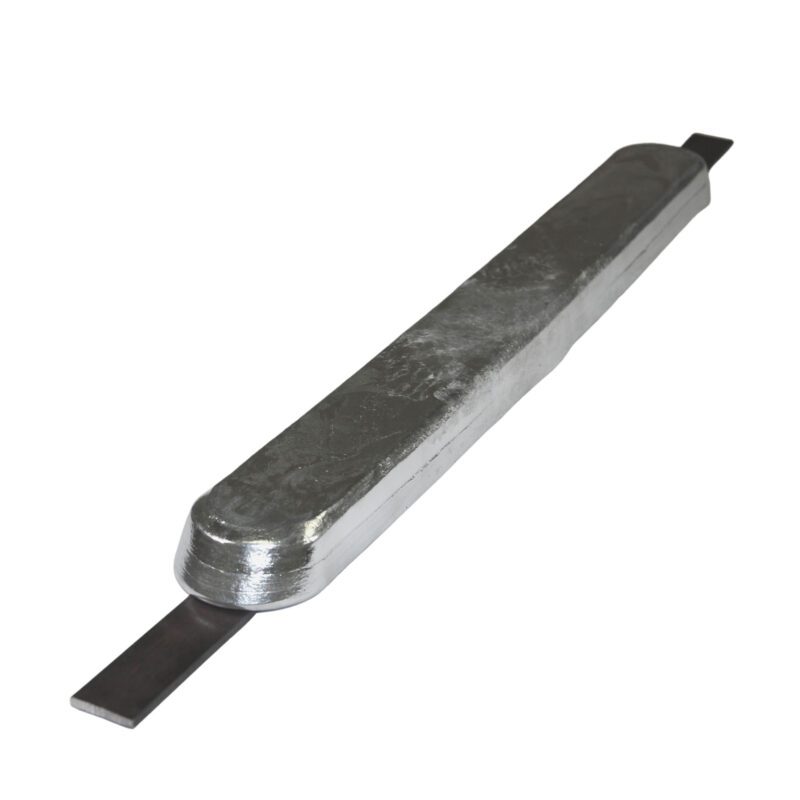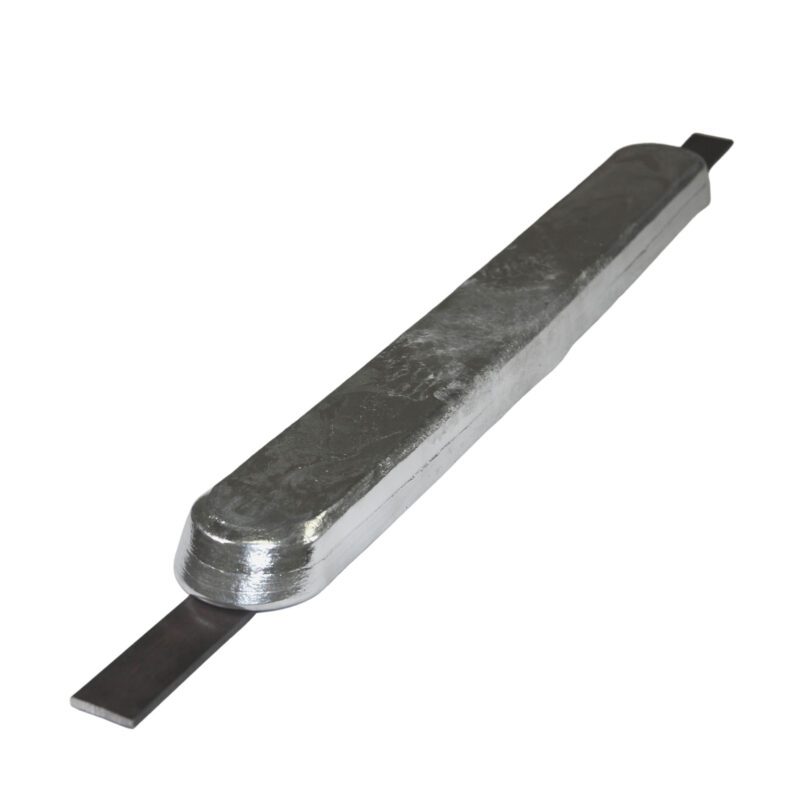Commercial Zinc or Aluminum Boat Hull Anodes (Zincs)
At Purity Alloys we manufacture a wide variety of Sacrificial Anodes for shipyards, distributors & marinas from 0.5 lbs to 600 lbs providing cathodic corrosion protection for the marine environment.
Purity Casting Alloys has been manufacturing Sacrificial Aluminum and Zinc Anodes since 1992. Our success in the Anode business is due to our commitment to product quality, product availability, and custom Anode sizes.
With our onsite spectrographic analysis you can be assured of alloy consistency from Anode to Anode.
Many people call Sacrificial Anodes "Zincs" because Aluminum is not used for various reasons - cost primarily. Aluminum Anodes are lighter and generally last almost twice as long as Zinc Anodes. As the price of Zinc goes up, the cost per pound ratio makes Aluminum more cost effective as an Anode material.
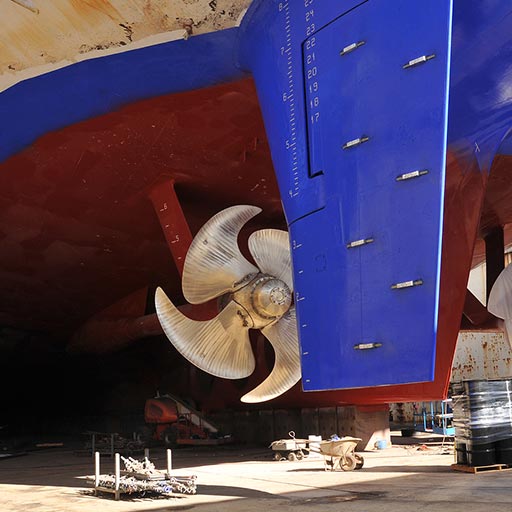
Purity's Aluminum and Zinc Anodes are manufactured with a wide variety of core materials to meet your specific application requirements. All Aluminum Anodes correspond to MIL-A-24779 and Zinc Anodes meet MIL-A-18001K.
Anodes (Zincs) are available with a variety of cores:
- Steel or Aluminum Weld-on straps
- Steel or Aluminum Bolt-on inserts
- Steel cable inserts; Stainless Steel Nuts or Bolts
- Threaded Rods
All Aluminum and Zinc Anodes meet US military specifications MIL-A-18001 & MIL-A-24779 also covered by ASTM-B-418-73, Type 1. Only graphite ladles & crucibles used - ensuring low iron contamination.
Whether it is for fishing boats, ocean going vessels, or crab traps we can provide low cost cathodic corrosion protection with Anodes. Custom Anodes are our specialty so please contact us with your requirements.



